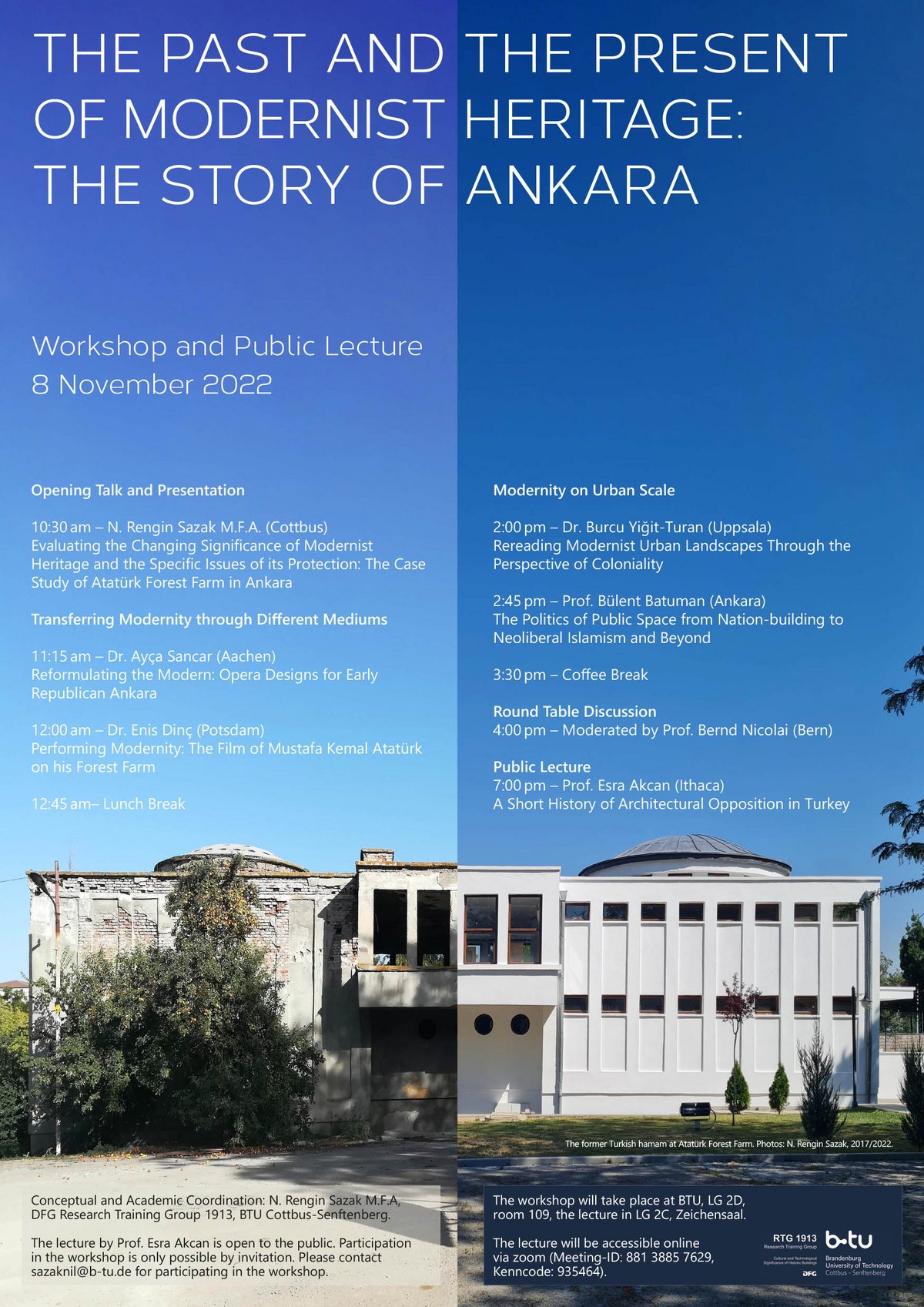"The Past and the Present of Modernist Heritage. The Story of Ankara"
Ankara was a small central Anatolian town until it was declared the capital of Turkey in 1923 and after that, a mass transformation process in this small town started. Starting from the 1920s, architects and urban planners from Europe, especially from German-speaking countries, were invited to create the new silhouette of the city by using the architectural approach of that time, “modernism”, with a strong emphasis on building a nation-state. The modernist architecture was highly used for representing the Republican values and the new ideology, and between the 1920s and 1940s, the whole city plan, the landscapes, residential areas, governmental and institutional buildings, and universities were designed by architects and urban planners such as Clemens Holzmeister, Bruno Taut, Paul Bonatz, Martin Elsaesser, Carl Christoph Lörcher, Hermann Jansen, and Ernst Egli. This constant transformation of the city formed the backbone of the young capital and made Ankara a modernist phenomenon in the history of urban planning and architecture.
This workshop aims to bridge the past and present of these buildings by reassessing them in their historical context and raising new questions about the current situation of these buildings and their changing significance. The usage of modernism in the Early Republican period and transferring it via diverse mediums such as movies and on different scales such as landscapes or architecture, will be reassessed through the case of Ankara. Different examples of modernist heritage from the capital will be presented in a historical perspective by scholars from the field. In the second part of the workshop, protection issues of this heritage will be examined and the ideological position of this heritage in the recent political atmosphere will be discussed. Overall, a story of an era will be told with new narratives and recent changes about this heritage.
Conceptual and Academic Coordination: N. Rengin Sazak (M.F.A), PhD Candidate at the Heritage Studies program and Associated PhD Candidate at the DFG Research Training Group 1913, BTU Cottbus-Senftenberg
The lecture by Prof. Esra Akcan is open to the public. Participation in the workshop is only possible by invitation. Please contact sazaknil@b-tu.de for participating in the workshop.
The workshop will take place at BTU, LG 2D, room 109, the public lecture will take place at 7 pm in LG 2C, Zeichensaal and online via zoom.

